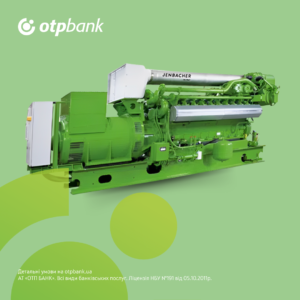
Bosnia and Herzegovina has opened its market for imports of Ukrainian poultry meat products of mechanical deboning, the press service of the State Service of Ukraine for Food Safety and Consumer Protection (Gosprodpotrebsluzhba) has reported.
“It is very important during the war to support Ukrainian exporters, to create new opportunities for them, because this is support for the economy of our state. Therefore, the Ministry of Foreign Affairs together with Gosprodpotrebbsluzhba constantly negotiate with foreign partners and step by step open new foreign markets for Ukrainian producers “, – said the Minister of Foreign Affairs of Ukraine Dmytro Kuleba.
“Ukrainian entrepreneur needs any support from the state, which is very important during the war. And the State Consumer Service together with the team of the Ministry of Foreign Affairs continue to open the international trade arena for our manufacturer. There are still about 63 countries in the work in almost 200 directions”, – emphasized the head of the department Serhiy Tkachuk.
The agreed form of veterinary certificate of the specified category of products is published on the official web portal of the State Consumer Service of Ukraine in the section “International Cooperation” – “Veterinary and Safety” – “Certificates for export from Ukraine”.
The agency reminded that the first step for exporting Ukrainian products of animal origin is a request of the market operator to the territorial body of the State Food and Consumer Service at the place of location.
Since the beginning of the full-scale invasion agreed 41 forms of international veterinary certificates for the export of objects of state veterinary and sanitary control and supervision from Ukraine, that is, 41 markets are open for the export of Ukrainian products, said the State Food and Consumer Service.

A “gender scandal” erupted at the 2024 Olympic Games in Paris because the organizers allowed athletes with XY chromosomes (male) to compete in the women’s competition, The Guardian reported. As it became known, in the 1/8 finals, Italian boxer Angela Carini refused to fight Iman Khelif. The fight was stopped 46 seconds after it started.
Carini cried and said that the blows that Khelif had dealt her were too strong.
“After the second punch, after many years of experience, I felt a strong pain in my nose. I said enough is enough because I didn’t want to. I couldn’t continue the fight after a blow to the nose. So it was better to end it,” The Guardian quoted the athlete as saying.
Earlier, in 2023, the International Boxing Association (IBA) disqualified Iman Helif and Lin Yu-ting from Taiwan because, according to IBA President Umar Kremlin, DNA tests proved that both athletes have XY chromosomes.
At the same time, the International Olympic Committee insists that both Khelif and Lin are “women with passports” and, like all the participants in the tournament, meet all the necessary criteria for participation.
Italian Prime Minister Giorgia Meloni commented on the situation: “I believe that athletes with male genetic characteristics should not be allowed to participate in women’s competitions. And not because you want to discriminate against anyone, but to protect the right of female athletes to compete on equal terms,” she said.
The Algerian Olympic Committee, meanwhile, stated that it “strongly condemns the unethical actions and slander of our respected athlete Iman Khelif through baseless propaganda by some foreign media.”

The National Committee of the US Democratic Party has launched an electronic voting procedure that is expected to result in the endorsement of US Vice President Kamala Harris as a presidential candidate in the 2024 elections.
According to ABC News, the voting began on Thursday at 09:00 am US East Coast time (16:00 GMT) and will end on Monday at 18:00 pm US East Coast time (01:00 GMT on Tuesday).
The electronic ballots that the delegates to the Democratic Party convention will receive contain only Kamala Harris’ name. According to the party, 3,923 delegates representing different regions of the country had previously filed a petition asking to put Harris’ name on the ballot. To be officially nominated as a presidential candidate, she must be supported by at least 1976 delegates.
Thus, Harris’s official endorsement may take place two weeks before the Democratic Convention, which opens on August 19 in Chicago. Voting will also take place there, but it will be purely ceremonial.
On July 21, US President Joe Biden announced his withdrawal from the presidential race, but will continue to serve as president until the end of his term and called on the Democratic Party to nominate Harris as its presidential candidate.
The US presidential election is scheduled for November 5, 2024.
Earlier, the Experts Club think tank presented an analytical material on the most important elections in the world in 2024, a more detailed video analysis is available here – https://youtu.be/73DB0GbJy4M?si=eGb95W02MgF6KzXU
You can subscribe to the Experts Club YouTube channel here – https://www.youtube.com/@ExpertsClub

Revenue of restaurant establishments in January-June 2024 showed an increase of 16%, and the average check increased by 13% compared to the same period in 2023 – up to UAH 148, said Rodion Yeroshek, EO of Poster POS.
“Revenue and the average check of establishments are growing due to price increases, but attendance has slowed down in recent months,” he wrote in a telegram.
Yeroshek noted that restaurateurs are forced to raise prices due to rising costs for utilities, staff salaries, and electricity generation. Most entrepreneurs have purchased or rented generators, and some are considering installing solar panels. In addition, there are those who are considering purchasing semi-finished products, which significantly reduces the cooking time in the establishment.
According to him, in February-April, attendance at food outlets was growing, but in May-June it dropped. Possible reasons include economic uncertainty and increased mobilization. However, the overall figure for the half-year was positive: +2% for the first half of 2024.
“The difficult circumstances in which institutions are forced to operate now do not stop the market. In the first half of 2024, 7617 individual entrepreneurs and LLCs have already registered under the restaurant KVED, which is 3% more than in the same period last year,” stated the CEO of Poster POS.
Poster POS is a Ukrainian restaurant automation company that develops accounting software for the HoReCa system and is installed on tablets. More than 50 thousand establishments use the developer’s services.
The research conducted by the company is based on non-personalized aggregated statistics of Poster sales data. The sample of respondents includes 8,500 catering establishments of all types from all regions of Ukraine.

Initial registrations of new passenger cars in Ukraine in July increased by 20% compared to the same month in 2023 and by 24% compared to June this year, amounting to about 6.4 thousand units, Ukravtoprom reported on its Telegram channel.
“This year, more cars were bought only in March,” the statement said.
As reported, in June 2024, according to Ukravtoprom, the market for new passenger cars moved to negative dynamics, decreasing by 8% by June 2023 and by 7% by May 2024 – to 5.2 thousand units.
According to the association, the leadership in July this year continues to be held by Japanese Toyota with 1024 cars registered (almost 5% less than in July 2023, but 20% more than in June 2024).
The second most popular brand, as in June, remains BMW, with a 15.2% increase in sales by June 2024 – up to 628 units. In July last year, the brand ranked fifth in the rating with 385 cars registered.
The third result was achieved by Renault, which improved its June-2024 result by 20.5% to 587 units. In July last year, it was second in the ranking with sales of 564 cars.
In addition, the top 5 in July included Skoda with 378 units registered (against 278 units a year earlier and 493 units a month earlier) and Volkswagen, whose registrations amounted to 334 units (525 units and 269 units, respectively).
According to Ukravtoprom, in January-July, more than 39.2 thousand new passenger cars were registered in Ukraine, which is 21% more than in the same period in 2023.
Experts attribute the revival in the new passenger car market in July primarily to the government’s initiative to tax buyers of new and used cars (including electric vehicles) with a 15% military duty when they first register in Ukraine, which led to an influx of buyers in car dealerships.
At the same time, they did not observe an abnormal rush and “emptying of car dealerships.”
AUTO-Consulting, an information and analytical group, also noted a jump in primary car registrations in July amid information about the intention to impose a military tax. According to the group, registrations of new cars increased by 20% by June 2024 to 6.04 thousand units (which is 14% more than in July 2023).
As reported, experts have expressed the opinion that the imposition of a 15% military tax could cause a collapse in car sales and lead to the loss of entire networks of official car dealers.
On June 18 this year, the Verkhovna Rada registered government bills on amendments to the state budget for 2024 on financial support for the security and defense sector (No. 11417) and amendments to the Tax Code and other laws on taxation during martial law (No. 11416). The latter provides, among other things, for a 15% military tax to be levied on car buyers when they first register their vehicles.
According to Ukravtoprom, in 2023, the first registrations of new passenger cars in Ukraine increased by 60.6% compared to 2022, to almost 61 thousand units, while AUTO-Consulting recorded a 62.4% increase in sales, to more than 65 thousand units.

JSC OTP BANK has signed its first loan agreement with a Ukrainian company to finance distributed generation. Support in the amount of UAH 16.6 million for the purchase of a cogeneration gas piston unit will be provided toAVIS LLC.
“The issue of electricity supply is extremely important for the economy, for business and for every citizen. The Bank has set itself the goal of stimulating the development of the market for energy-independent solutions. We are ready to offer our customers the best deals and favourable conditions that will guarantee uninterrupted operation in the face of electricity shortages,” said Olga Volkova, Director of the Sales Department for Medium and Small Corporate Clients of OTP Bank.
The agreement is a concrete step by the Bank to implement the Memorandum on lending to energy infrastructure restoration projects. The document defines the strategic direction of the credit policy for financing investment energy projects. Assistance is provided for the construction and purchase of solar, wind, biogas, gas turbine and gas piston power plants, industrial batteries, and cogeneration units.
With the financial support of the Bank, a company that produces a wide range of food products will be able to purchase a Jenbacher JMS 320 GS-N.L. gas piston cogeneration unit with a capacity of 1,066 kW. The installation of such a unit will provide the company with maximum independence from the power grid and improve its economic efficiency. The equipment is beneficial because natural gas is an affordable fuel. In addition, it is a good investment in the future, as this modern technology does not have a negative impact on the environment.
As a reminder, on 25 June 2024, JSC OTP BANK and leading banks signed a Memorandum on lending to energy infrastructure restoration projects. Representatives of 17 financial institutions signed the document.